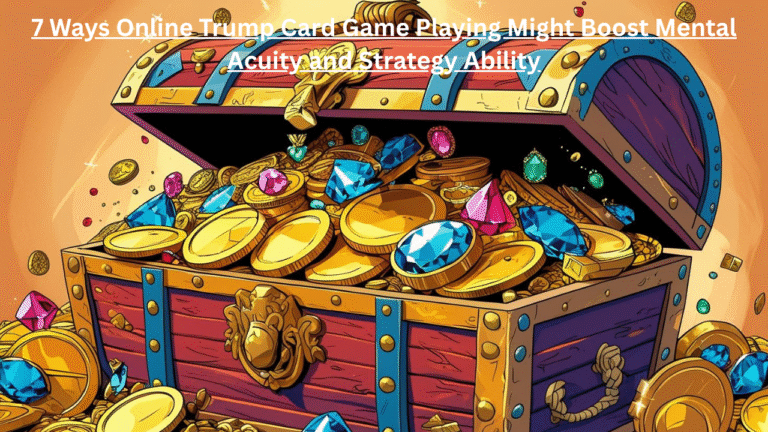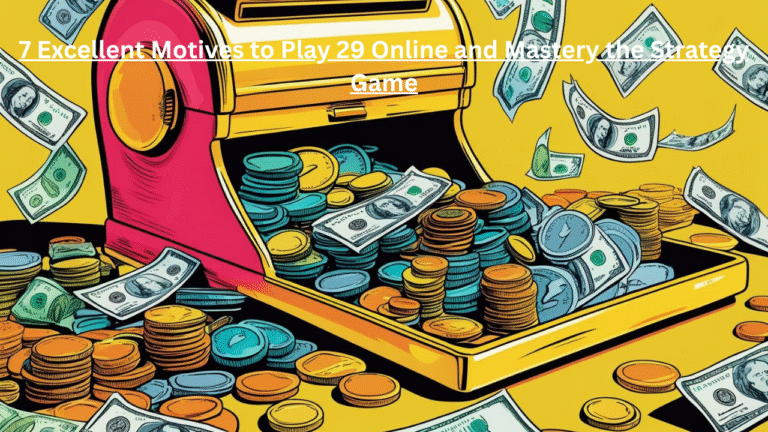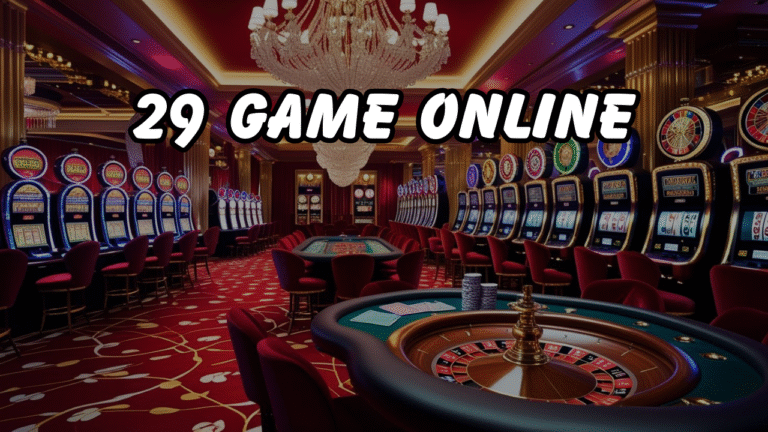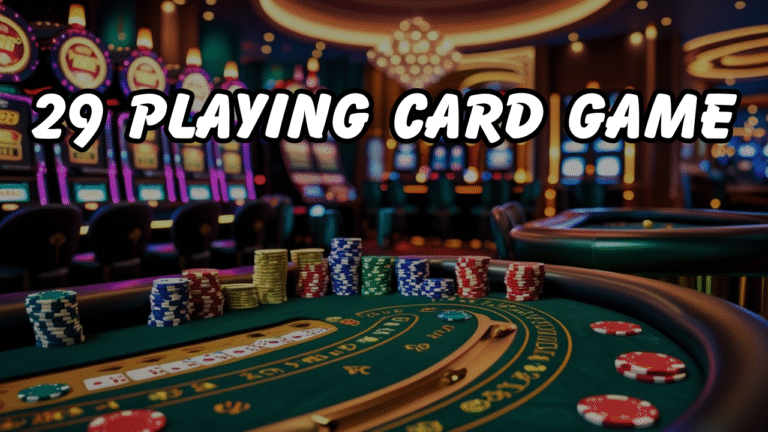Introduction: Reviewing the Strength of Conventional Card Games
29 card game: Old card games are still important in a time of mobile gaming and fast-paced digital entertainment not only for fun but also for strategic thinking and mental acuteness exercise purposes. Specifically from South Asia, the 29 caard game is a game that has gone about its business silently in homes and gaming communities.
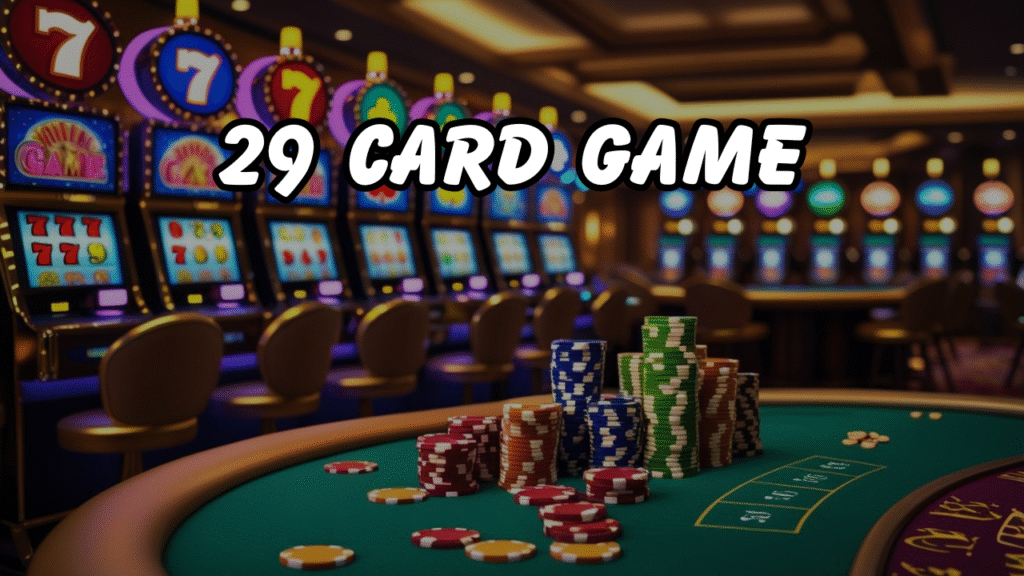
Underappreciated at times, the 29 game is a master class in psychology, memory, teamwork, and strategy. It is mentally demanding as well as very social and tests players in a way that is quite uncommon to find in contemporary games. We will explore the rules, psychological strategies, cognitive benefits, and some professional advice in this whole guide to become a master of the 29 cards game while underlining its good influence in brain growth and decision-making.
About the 29 Card Game?
Mostly driven in India and Bangladesh, the 29 cards game is a trick game. Played among four players split in pairs, the game comprises 32 cards out of a conventional 52-card deck—that is, the 7 to Ace cards in all four suits.
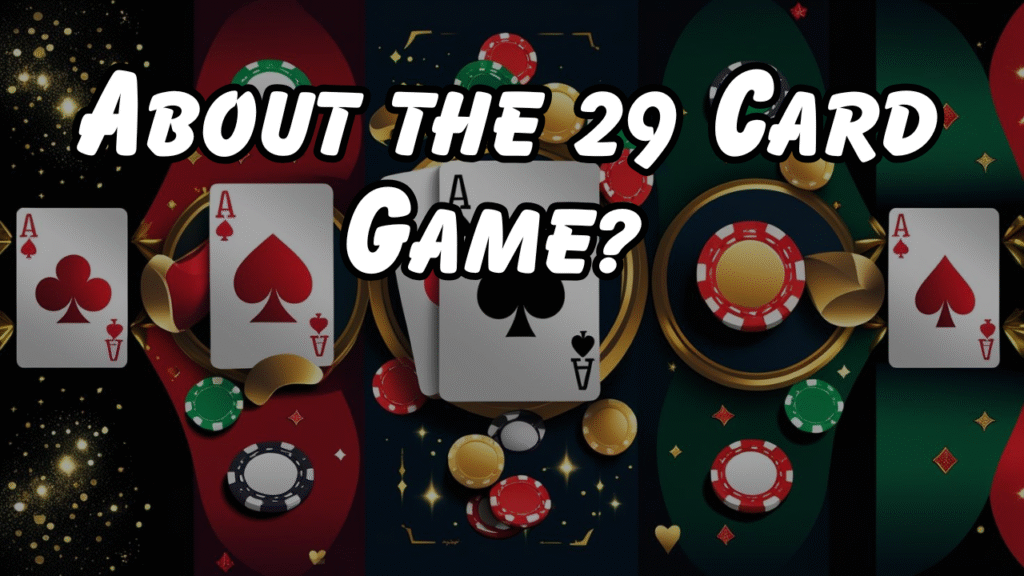
A single team should bid and take at least the number of tricks they have promised overall. The 29 game’s lack of consistency and demand of psychological advantage, however, define its actual thrill.

Guidelines and Set Up for Games
Stack Played with 32 cards (7 through Ace of every suit).
There are four players total, two teams.
Values in Cards:
Three points for Jacks
Two points: nines
Aces: one point
Tens: a single point
Kings, Queens, Eights, Sevens: zero points
Though the game “29” gets its name from the bonus point provided should a team take all tricks, total points are 28.
Starting at sixteen, bidding runs as high as twenty-seven. The highest bidder controls the trump suit.
Trump: Not evident unless a player fails to follow suit.
Goal: To get the bidding stage’s worth of points bid.
7 Strategic Reasons to Play the 29 Card Game:
1. Increases Retention of Memory
Players of the 29 cards game must remember earlier played cards, pay close attention to opponent moves, and track suit distribution. All of these highly focused mental tracking improve both pattern recognition and short-term memory.
2. sharpens strategic thinking.
Every bid, every card you play, and every signal you give your partner— verbally or visually—are components of a more general plan. As in real-life decision-making, players constantly balance risk against profit.
3. Promotes team communication
Unlike solitaire or single card games, 29 is very team-oriented. Success depends on your ability to understand without words your partner’s strategy. This develops confidence, eye contact intelligence, and nonverbal cues.
4. strengthens concentration and patience.
You do not rush in this game. Players must be focused all through each hand. One miscalculation can lead to a lost bid or pivotal score, so self-discipline becomes quite important.
5. Advises analytical risk management.
Players must assess their hand and project a number they could reasonably reach during the bidding round. This is a game of confidence and reality, which is a talent applicable in sectors such business and finance.
6. Improves emotional restraint
Tight games abound in frustration, especially when luck changes. Great lessons on emotional intelligence, players learn self-control of emotions, maintain cool, and avoid revealing tells.
7. improves mental flexibility Evolution
Regular play keeps your head busy. This is a session on mental fitness. Particularly older players report they feel more confident and acute in daily decisions.
Playing the 29 Cards Game: Detailed Guide on Steps
preparation and dealing
Deal four cards to every player in a shuffle. Once everyone has had a first hand look, bidding begins.
bidding
Players bet 16 to 28 beginning with the player to the dealer’s left. The highest bidder gets the honor of declaring trump following the distribution of the remaining cards (4 extra per player).
announcing Trump
Once all eight cards are obtained, silently the highest bidder selects a trump suit. Trump is not declared until absolutely necessary in performance.
Tricks Playing
The first card is played by the dealer’s left turnee. If at all possible, players should play suit. Otherwise they can play discard or trump.
Evaluating
At the game’s finish, points are totaled. The bidding partnership scores whether their specified count is reached or exceeded. Otherwise, their opponent marks.
Advanced Advice for Competitive Play Track High Cards Learn which high-value cards (Jack, Nine) you should use for informed estimates going forward.
Track overall card points rather than counting tricks. The quality counts more than the quantity of tricks acquired.
Save Trump: Try not to early waste your trump cards. Hold them to break off important plays later.
If you are playing with a regular partner, create signals depending on gameplay style—not cheating, but logical patterns.
Every hand is different. Adapt quickly. Formal approaches are useless. One needs flexibility.
FAQs on the 29 Cards Game
Given only 28 points, why is the 29 card game titled as such?
There are 28 points overall; but, a team gains one more point if they win all 8 tricks, therefore reaching 29.
Novices should find this game appropriate?
Indeed, even though learning about bidding and trump techniques will take some rounds.
Is it playable online?
Indeed, some mobile apps and websites offer digital equivalents with multiplayer capacity.
How unique is it among other trick games?
It is especially complicated and fulfilling because of its point-rewarding techniques, strategic bidding, trump hiddenness, and team collaboration.
Minimum ability needed to engage in game play?
Starting with a basic logical thinking and general knowledge of card ranks, is enough. Players grow naturally with experience.
Last Words: Why Should You Try the 29 Card Game?
The 29 card game is not merely a traditional game. This war of wits is an exercise in teamwork, a field of practice for memory, strategy, and psychological warfare. Played competitively or recreally with friends, it offers consistent cerebral stimulation and an unmatched gaming experience.

Rediscovering games like 29 can inspire the delight of cognitive play in a time when entertainment is more passive and attention spans are shortening. The 29 cards game offers something for everyone—sharp thinking, meaningful engagement, and real fun regardless of your level of education, career, or retirement.

